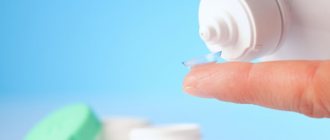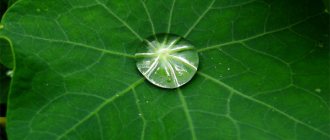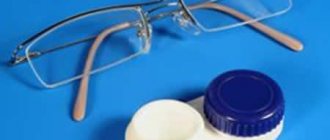Proper care of your glasses not only ensures better vision, but also extends the life of the accessory. We offer some tips on how to clean your glasses to maintain their beauty and increase their longevity. After all, improper cleaning can damage even modern lenses, which have a hard scratch-resistant coating.
Cleaning your glasses daily is a good way to maintain their appearance.
Rules for cleaning glasses
First you need to find out the type of lenses. This is necessary because the materials used to make glass differ from each other in their level of scratch resistance, reaction to chemistry and high temperatures.
With plastic lenses
The plastic is light, flexible, but prone to the formation of scratches and plaque ( precisely plaque, not streaks, the latter are typical for glass lenses ). For this reason, when caring for them, use exclusively:
soft warm water with a minimum amount of cleaning impurities;- products that do not leave streaks;
- liquid chemistry;
- very soft rags, colorless and made from natural fabrics.
Ideally, you need to use specialized wipes. You can buy them at the optician.
Important! Do not use a cloth to clean your glasses that has previously been used for other work. Even if you washed it afterwards, there is no guarantee that the fibers did not absorb fat or detergents that are incompatible with the frame or lenses.
With glass lenses
Breakable, heavy, prone to stains, but resistant to scratches and film deposits on the glass. The latter quality allows you to wash the lenses under running water (do not do this if the frames are metal) and use a variety of products when caring for them, from specialized solutions to dishwashing liquid.
Important! To prevent the product you use from leaving streaks, do not let it dry naturally.
With coated lenses
The film and coating can be damaged, come off, or even peel off from contact with potent substances. Also, do not use on the following lenses:
heated household cleaners;- powdered formulations;
- chemicals containing acetic acid;
- ammonia-based products;
- fat-soluble liquids.
Instead of the options listed, contact a pharmacy or optician and ask them to select a liquid or spray for the care of glasses with filter films or protective coating. Often, such products not only carefully remove all types of dirt commonly found on glasses, but also additionally have a dust-repellent and antistatic effect.
Cleaning products
Before moving on to methods for removing dirt from lenses, we list those products that should not be used:
- glass and mirror cleaner;
- ammonia;
- bleach;
- vinegar;
- lemon juice;
- toothpaste;
- paper towels;
- face wipes.
Also, avoid breathing on your lenses and then wiping them with a cloth, such as clothing.
Common products such as vinegar and lemon juice should not be used when cleaning lenses.
Best remedies:
- water;
- dishwashing liquid;
- medical alcohol;
- microfiber cloth;
- wipes for lenses.
Let's take some cleaning products and test their effectiveness. What would be the best solution other than dish gel, which is the most recommended product?
Alcohol. Most eyeglass cleaning solutions contain alcohol. Take a spray bottle of any size and use the following recipe.
Fill it three-quarters full with 96% alcohol. Add 2 small drops of dish liquid and fill the bottle with water. Shake the mixture gently, being careful not to create bubbles. Now simply spray it on both sides of the lenses and gently wipe them with a soft cotton cloth.
Cleaning wipes. You can buy special wet wipes at the optics to take care of your glasses outside the home. Don't forget that wipes dry quickly, so don't waste time, quickly wipe the glass on both sides, and then the frame on the bridge of your nose and nose pads.
Cloth. The biggest mistake in lens care is breathing on them and using the edge of your shirt to rub off stains. This will cause significant damage to the glasses because clothing contains dust and other particles that can easily scratch them.
A necessary condition for cleaning glasses is the use of liquid, but it is not involved in this method. Therefore, dust particles from the fabric will be pressed into the glass and scratch it as they move.
Using a microfiber cloth, you can clean not only various surfaces, but also glasses without streaks
Microfiber cloths. Microfiber is considered the best for cleaning any materials that are susceptible to scratches. However, dust and debris can still get into the fabric, so it's important to keep it clean - hand wash it every week and hang it to dry. Do not use microfiber to polish a dry lens.
Ultrasonic bath. If you feel the need for deep cleaning, then contact an optician or jewelers who have an ultrasonic bath. A similar device can also be purchased in a store.
What cleaning methods can be used?
Wet and dry cleaning methods using water, specialized and household cleaning products are acceptable. When choosing an option, consider the type of frame and lenses, their condition and recommendations from the manufacturer, which can be found in the booklet or instructions for the glasses.
Napkins and cloths
Specialized napkins are disposable and reusable. The latter, as a rule, are made from microfiber, which effectively and carefully removes dirt and does not leave behind streaks. Traces remain only if a dirty cloth is used . To return it to cleanliness, just use a weak soap solution or regular soap. It is not recommended to machine wash with other items.
Important! Reusable cloths do not require liquid products, but can be supplemented with them. The treatment procedure itself is reduced to mechanical wiping with or without preliminary spraying. Combined use will require washing the cloth (provided that the lenses were seriously dirty or the cloth had already been used for cleaning several times before).
Disposable napkins cannot be washed; they lose their integrity due to such a procedure. But they are often impregnated with special additives that help achieve the best results with minimal effort . Their use is limited to wiping the surface. There is no need to dry your glasses after this.
In addition to specialized napkins and rags, you can also use ordinary soft rags. It is advisable that they be new and not previously used for cleaning other items. The priority is soft and natural fibers, colorless and highly absorbent. The latter quality must be clearly expressed, otherwise streaks may appear.
It’s still not worth using ordinary rags to dry it . This method can be resorted to only in case of urgent need and complete lack of time. It would be much more correct to hold the frame for about a minute under warm water, and only then start working with a rag. At the end of the procedure, place the glasses on another dry cloth . This will allow small fasteners and hard-to-reach places to dry properly.
Important! Water is completely replaceable with specialized cleaning compounds.
Compositions and means
Specialized sprays and liquids are characterized by careful treatment of optical devices. At the same time, they remove all typical contaminants from glass, both organic and inorganic. And their contact with the plastic frame does not lead to the formation of a film. Most of them, in addition to their main function, also cope with a number of optional ones. For example, they act as an antiseptic or antistatic.
Some of them additionally prevent fogging . The topic raised is a pressing problem that arises when there is a sharp change in temperature (in other words, when entering a room from a winter street). Its peculiarity is that such sediment cannot be completely removed by wiping. You have to wait until the frozen glasses can adapt to the room temperature. Treated glass is much less susceptible to fogging . Even if this happens to them, the resulting sediment is easily removed from the surface of the lenses.
Important! When choosing a composition, pay attention to what type of lenses it is compatible with. In addition to universal products that are equally suitable for sunglasses and corrective glasses with any type of lenses, there are also highly specialized products. It is designed for use with a specific type of optical devices and only in combination with them shows decent results.
Recommended sprays and products:
- Good Look. A universal spray that improves light transmission and prevents fogging.
- HD. Solution for glass lenses. It is noteworthy that it can process not only glass, but also all types of frames.
- Spray Clean. A universal option, suitable also for anti-glare glasses.
Methods for removing dirt
Follow these steps to properly clean your glasses and sunglasses:
- Wash and dry your hands thoroughly. Use lotion-free soap or dishwashing liquid and a clean, lint-free towel.
- Rinse the accessory under running warm tap water. This will remove dust and other debris, which will help avoid scratches when cleaning. Avoid hot water, which can damage some glass coatings.
- Apply a small drop of dishwashing liquid to each lens. Use only products that do not contain lotions, hand moisturizers, vinegar or citric acid.
- Gently wipe both sides of the lenses and all parts of the frame for a few seconds, including the nose pads and temple ends. Pay attention to the place where the edges of the glass meet the frame to get rid of plaque, dirt and grease there too.
- Rinse both sides of the lenses and frame thoroughly.
- Gently shake the glasses to remove most of the water. Carefully inspect the glass to make sure it is clean.
- Dry the glass and frame with a clean, lint-free towel. Use a kitchen cloth that has not been washed with fabric softener (this substance can damage the optics). Make sure it is perfectly clean. Dirt or debris caught in the fibers can scratch the glass.
- Inspect the lenses. If any streaks or stains remain, remove them with a clean microfiber cloth.
We invite you to familiarize yourself with the Limescale Formula
The second, more delicate, but also effective way to use dishwashing liquid is as follows: soak your glasses in a bowl filled with warm water with a spoonful of detergent. After this, wash them under warm water. Gently dry any remaining drips with a clean microfiber cloth. Swimming goggles require even more delicate care: it is best to simply wash them under running warm water and air dry without wiping.
What should you not clean your glasses with?
Tools and products not recommended for use:
- based on ammonia and vinegar;
- fat-soluble;
- bleaches;
- window cleaning products;
- hard brushes, rough fabrics;
- paper napkins;
- rags with an uneven surface;
- dyed rags.
Important! Scratches can occur even after using a very soft but dusty cloth. Therefore, store wipes intended for glasses in a case or other place that is difficult to reach for small particles of dirt.
Also, do not expose polycarbonate lenses to alcohol-containing compounds, dishwashing detergent (suitable only for glass) and too hot water. Glass ones should not come into contact with powders and chemicals, which leave stains behind.
How I ruined some plastic glasses
– Left it in the heat in the car. Literally for a few minutes. The plastic became cloudy and attempts to clean the glass with suede and microfiber only worsened the condition of the lenses: it was as if they had been walked over with sandpaper









